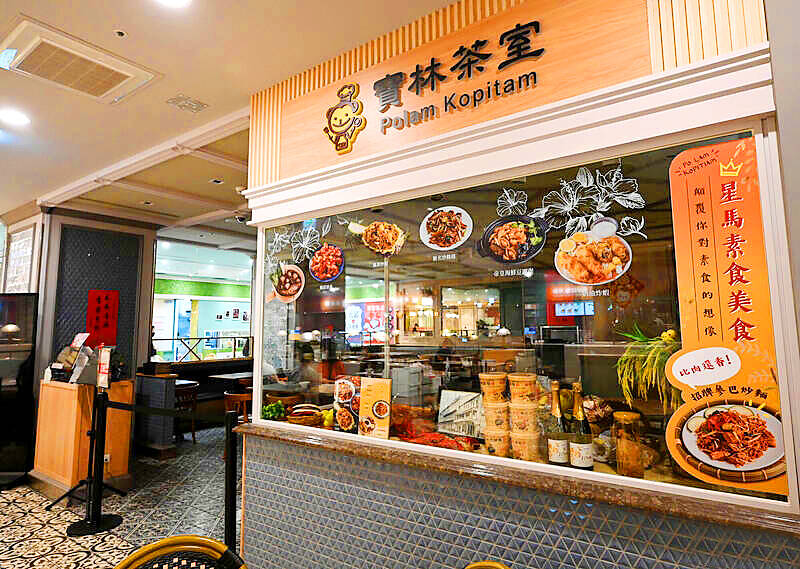Medical professionals yesterday said that suspected food poisoning deaths revolving around a restaurant at Far Eastern Department Store Xinyi A13 Store in Taipei could have been caused by one of several types of bacterium.
Ho Mei-shang (何美鄉), an epidemiologist at Academia Sinica’s Institute of Biomedical Sciences, wrote on Facebook that the death of a 39-year-old customer of the restaurant suggests the toxin involved was either “highly potent or present in massive large quantities.”
People who ate at the restaurant showed symptoms within hours of consuming the food, suggesting that the poisoning resulted from contamination by a toxin and not infection of the digestive system, Ho said.

Photo: Tien Yu-hua, Taipei Times
The substance that tainted the food could be toxin from poisonous mushrooms or one of two bacterium, Bacillus cereus or Clostridium botulinum, if reports of liver failure being a shared symptom are true, she said.
The bacterium thrive in temperatures above 25°C and in starchy environments, with the people affected reportedly having consumed pho or cellophane noodles, she said.
Poor food preparation procedures, such as leaving noodles at room temperature for too long could allow bacterial cultures to form, Ho said, adding that cooking does not reliably neutralize their toxins.
The government is advised to keep in mind that deliberate poisoning can also be a possible explanation for the incident, she said, adding that national security agencies would have to be involved to deal with sabotage by mass poisoning.
Lee Chien-chang (李建璋), a doctor of emergency medicine at National Taiwan University Hospital, said that B cereus is a possible culprit for the poisoning.
Its spores and secreted toxins can survive being stir-fried and have caused several documented cases of poisoning, dubbed fried rice syndrome, Lee said.
B cereus poisoning is also difficult to detect, as traces of the bacteria are excreted relatively quickly, he said.
Huang Chien-hsien (黃建賢), chief epidemiologist at Shin Kong Wu Ho-su Memorial Hospital in Taipei, which treated a 66-year-old who died of the alleged food poisoning yesterday, said that the person had gastroenteritis, so stool and blood tests were taken, but the common bacterial or viral pathogens that cause stomach flu were not found.
Staphylococcus aureus in food can multiply and produce toxins that can make people ill, but the patient’s symptoms onset was faster and the symptoms seem more serious than S aureus food poisoning, Huang said.
Asked about the possibility that Bongkrek acid was involved, he said past cases were mostly linked to cooked food that had been left at room temperature for too long.
However, the bacteria is not a specific part of routine inspections, so it is unclear whether it is involved in this week’s case, he said, adding that Food and Drug Administration testing would likely resolve the matter.

Eight restaurants in Taiwan yesterday secured a one-star rating from the Michelin Guide Taiwan for the first time, while three one-star restaurants from last year’s edition were promoted to two stars. Forty-three restaurants were awarded one star this year, including 34 in Taipei, five in Taichung and four in Kaohsiung. Hosu (好嶼), Chuan Ya (川雅), Sushi Kajin (鮨嘉仁), aMaze (心宴), La Vie by Thomas Buhner, Yuan Yi (元一) and Frassi in Taipei and Front House (方蒔) in Kaohsiung received a one-star rating for the first time. Hosu is known for innovative Taiwanese dishes, while Chuan Ya serves Sichuan cuisine and aMaze specializes

STATS: Taiwan’s average life expectancy of 80.77 years was lower than that of Japan, Singapore and South Korea, but higher than in China, Malaysia and Indonesia Taiwan’s average life expectancy last year increased to 80.77 years, but was still not back to its pre-COVID-19 pandemic peak of 81.32 years in 2020, the Ministry of the Interior said yesterday. The average life expectancy last year increased the 0.54 years from 2023, the ministry said in a statement. For men and women, the average life expectancy last year was 77.42 years and 84.30 years respectively, up 0.48 years and 0.56 years from the previous year. Taiwan’s average life expectancy peaked at 81.32 years in 2020, as the nation was relatively unaffected by the pandemic that year. The metric

Taitung County is to launch charter flights to Malaysia at the end of this year, after setting up flights to Vietnam and Thailand, the Taitung County Government said yesterday. The new charter flight services, provided by low-cost carrier Batik Air Malaysia, would be part of five-day tour packages for visits to Taitung County or Malaysia. The Batik Air charter flight, with about 200 seats, would take Malaysian tourists to Taitung on Dec. 30 and then at 12:35pm return to Kuala Lumpur with Taiwanese tourists. Another charter flight would bring the Taiwanese home on Jan. 3 next year, arriving at 5:30pm, before taking the

Taiwan High Speed Rail Corp. (THSRC) plans to ease strained capacity during peak hours by introducing new fare rules restricting passengers traveling without reserved seats in 2026, company Chairman Shih Che (史哲) said Wednesday. THSRC needs to tackle its capacity issue because there have been several occasions where passengers holding tickets with reserved seats did not make it onto their train in stations packed with individuals traveling without a reserved seat, Shih told reporters in a joint interview in Taipei. Non-reserved seats allow travelers maximum flexibility, but it has led to issues relating to quality of service and safety concerns, especially during